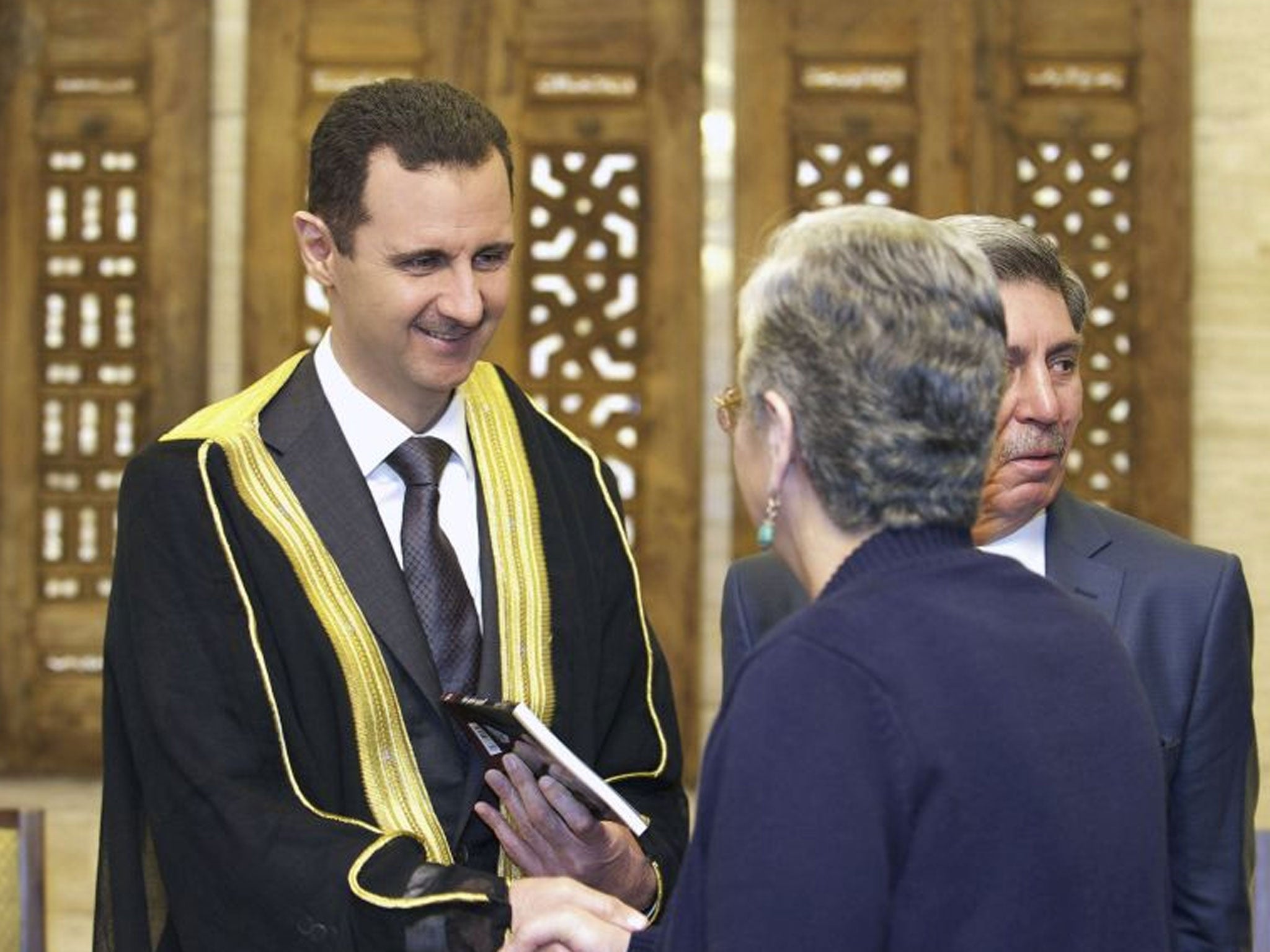Iran 'building militias' to take control of Syria if and when Assad regime falls
Battle lines redrawn as Assad regime hangs by thread in wake of rebels’ push into heart of capital

A push by rebels towards the heart of the Syrian capital has prompted the most significant movement to stagnant battle lines in months, amid reports that Iran is building militias on the ground in preparation for the fall of the regime.
The “Battle of Armageddon”, as the rebels call it, saw the key eastern Damascus district of Jobar pounded by airstrikes again today after opposition fighters seized a base from pro-government forces. But while the offensive has brought violence a step closer to the centre of the city, analysts say that the push so far has not been “game changing” as rebels are struggling to hold on to their gains.
The civil war has grown increasingly fractured and chaotic as the conflict approaches its two-year anniversary. There was confusion today an after explosion struck cars queuing to cross into Syria on the country’s northern border with Turkey, killing at least seven people and wounding 33, according to Turkish officials.
The blast hit a vehicle queuing to pass the Bab al-Hawa crossing, which is in the hands of the Free Syrian Army and is a key transit point for aid and refugees. It was unclear if the blast was a car bomb deliberately targeting the border, or an accident involving gas or explosives being transited into Syria.
In Damascus, the rebels have been in control of a crescent of outlying suburbs in the capital’s south and north-east. They began a new push for positions on the city’s southern ring road last week.
Opposition fighters seized the Al Musiqa base from loyalists on Sunday night, with videos posted online by activists showing members of the Armour of the Capital brigade arresting at least ten soldiers, making them lie face down on the ground. Another showed a large explosion as rebels launched their assault.
It was the third loyalist position seized in recent days in the Jobar area, which sits next to central Abbasid Square. Though the centre still remains largely unscathed, the offensive has increased nervousness in the capital.
“Many roads have been closed down and the situation is definitely escalating,” said a 29-year-old resident of the Mezzeh district. “The army have greatly increased their numbers and they have a very, very, tight fist around the central areas.”
In another rebel advance, opposition Islamist fighters from the Al Nusra Front seized the Taqba hydroelectric dam, built on the Euphrates River by former president Hafez al-Assad in the 1970s. The dam serves Aleppo, the country’s second city, with electricity.
Syria’s key allies Iran and the Lebanese militant group Hezbollah, meanwhile, are preparing for the eventuality of the regime’s fall by building a 50,000-strong militia on the ground, according to a report in the Washington Post, which cited US and Middle Eastern officials. But it remains to be seen if any of the recent rebel gains will be lasting.
“Their modus operandi is to hit and run and they are still a guerrilla force,” said Elias Hanna, a retired Lebanese general and professor at the American University of Beirut. “When they are well organised, have unity of command and are taking places and holding them, then it will be game changing.”
Moaz al-Khatib, the head of the opposition’s National Coalition, said he was still open to talks with the regime, despite them giving no response to his offer before a Sunday deadline.
“The regime has not given a clear answer so far, clearly, frankly, that it accepts leaving to spare destruction and blood,” he said after a meeting with the head of the Arab League in Cairo, where he is understood to have pushed for the coalition to be given Syria’s seat in the pan-Arab body.
Join our commenting forum
Join thought-provoking conversations, follow other Independent readers and see their replies
Comments
Bookmark popover
Removed from bookmarks